How to Avoid Paying Traffic Tickets With This Easy Trick
Every year, about 41 million Americans will receive a traffic ticket of some kind. With about 195 million drivers, that means your chance of getting a ticket is about 1 in 5 every year. With so many traffic tickets being issued, many people are left searching for ways how to .
Fighting traffic tickets will vary based on what state you're in, as well as what municipal jurisdiction issued the ticket. Regardless of where the ticket was issued, DoNotPay can help you . Or if you wish to fight the ticket on your own, the below guide will get you going in the right direction.
Types of Traffic Tickets
There will be a lot of variances between states, but traffic tickets can generally fit into 4 different categories: non-moving violation, moving violation infraction, moving violation misdemeanor, and moving violation felony. Below is a summary of each category, but do note that your state may have a unique classification for specific citations.
| Non-moving | Non-moving violations are issued when the car is not in motion
The common citations for non-moving violations involve parking, fix-it tickets, and expired license plate tags Typically, non-moving tickets result in a fine and nothing else. It is uncommon for a non-moving ticket to result in points against a license or court-ordered driving class |
| Moving Traffic Violation – Infraction | Moving traffic violations are issued when the violation occurs while the car is in motion.
"Infractions" are the least severe category of moving traffic violations. In most states, infractions aren't considered criminal matters. In addition to fines, infractions may result in points being applied against your license and court-ordered driving classes. Common types of infractions include moderate speeding, failure to stop at a red light or stop sign, and in 48 states, texting while driving. (Missouri and Montana are the only states that don't have texting while driving laws.) |
| Moving Traffic Violation– Misdemeanor | Traffic misdemeanors are a more serious matter, and often are considered a criminal offense.
Each state will have its own guidelines on the difference between an infraction and a misdemeanor. Generally, a traffic violation becomes a misdemeanor if the driver has a history of traffic violations, there was an injury or fatality due to the traffic violation, there was significant property damage during the violation, or if there was a high risk of injury or significant property damage during the violation. In all 50 states, a first DUI is a misdemeanor. However, a DUI can be escalated to a felony in certain situations, e.g. if there was an injury, fatality, or property damage. Excessive speeding may also be considered a misdemeanor in your state. Most states distinguish "reasonable speeding" from "excessive speeding" in terms of citations. Other factors such as speeding in a school zone or construction may also be considered. In most states, a traffic misdemeanor can lead to a suspended license, impounded vehicle, and up to one year in jail. |
| Moving Traffic Violation– Felony | Felonies are the most severe form of traffic violation and tend to result in jail time.
Multiple DUIs can result in a felony, but the specifics vary a great deal from state to state. Four states will issue a felony for a second DUI, while five states will not escalate multiple DUIs to a felony. Mothers Against Drunk Driving has a full breakdown of state felony DUI laws. Hit and runs are often considered felonies if there was an injury. Again, there will be a lot of variance from state to state. Some states consider serious property damage from a hit and run to be a felony (Arkansas), while others consider it to be a misdemeanor (Texas). |
How to Fight a Traffic Ticket
- The first step is to assess the severity of the ticket. Felony and misdemeanor traffic tickets will almost always require a court appearance to dispute the ticket. Many infraction traffic violations can be fought with a "Trial by Written Declaration."
- A Trial by Written Declaration allows you to fight a traffic ticket without a court appearance. Instead of appearing in court, you will submit all the beneficial evidence by mail or online.
- After the submission, a Judge will review your evidence and make a ruling.
- Each jurisdiction will have different requirements for a Trial by Written Declaration. Common requirements include
- Any bails are paid
- The traffic violation didn't result in an accident
- The defendant doesn't have a history of failing to appear in court or missing court fines
- The Trial by Written Declaration is submitted before a designated deadline
- While a Trial by Written Declaration is a great way to fight unfair traffic tickets, the whole process can be quite confusing. Getting a ruling in your favor largely hinges on the quality of the letter.
- DoNotPay can automate the process of fighting traffic tickets in just minutes
Steps for Disputing a Traffic Citation With DoNotPay
DoNotPay started as a way for people to fight unfair parking tickets. In our first few years of operation, we've saved drivers over $4 million in parking ticket fees, as confirmed by Newsweek. Since then, we've expanded our service to include traffic citations.
No matter which state you live in, we can help you fight a traffic ticket. Follow these five easy steps to get started:
- Access your DoNotPay account and go to the "Ticket Disputes" category. Choose the correct product based on your traffic ticket.
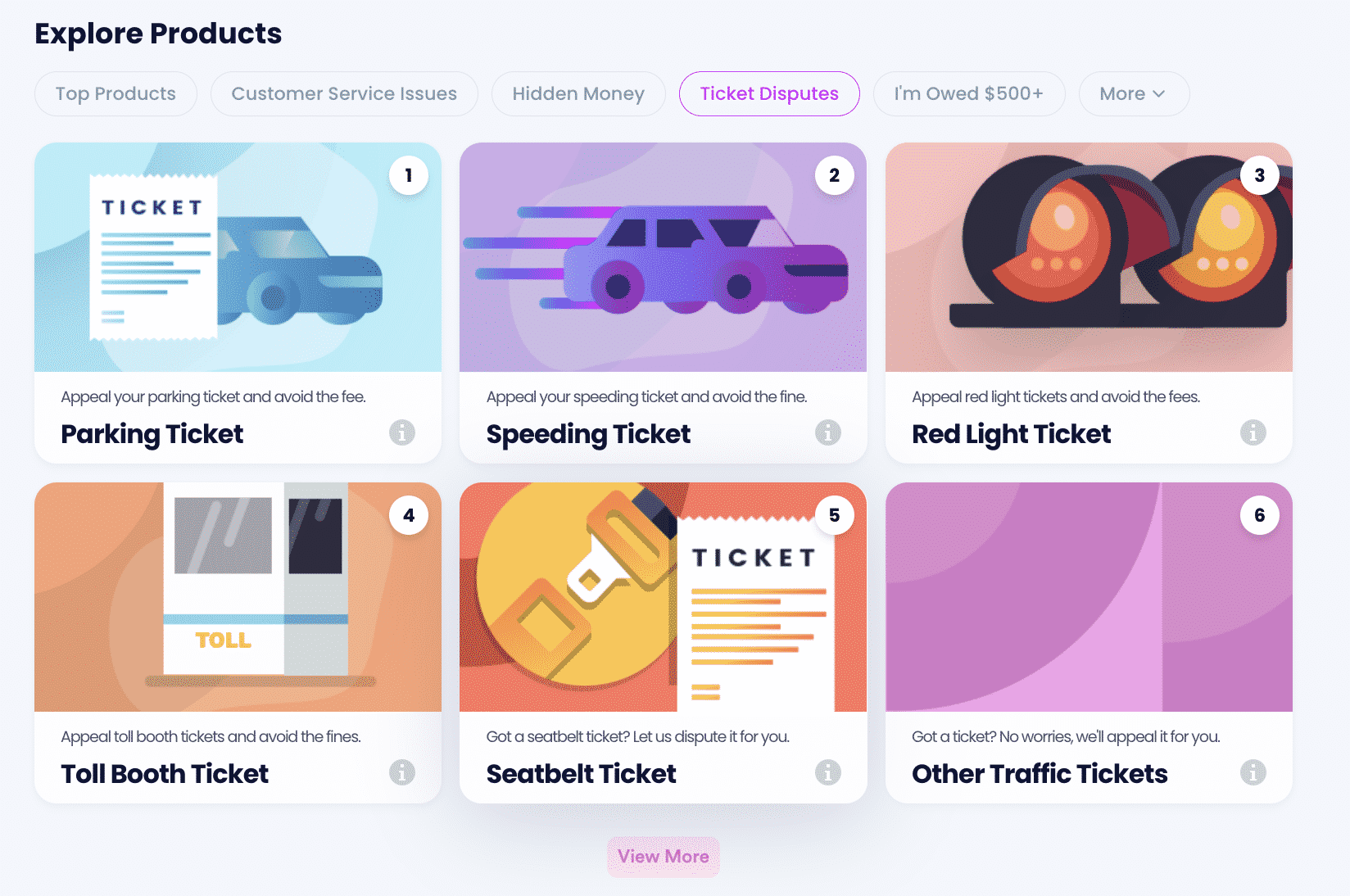
- Upload a photo of the citation or ticket.
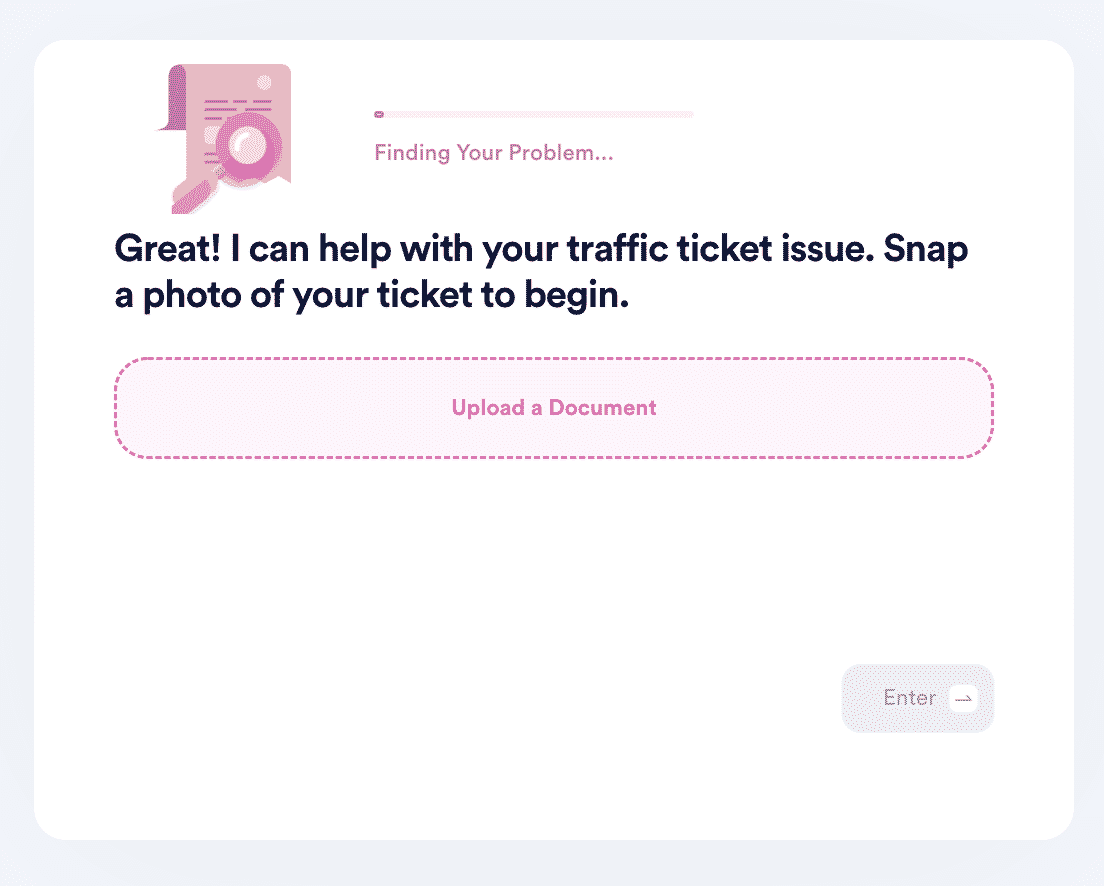
- Explain to us why the ticket was issued in error. Provide the best evidence possible for best results.
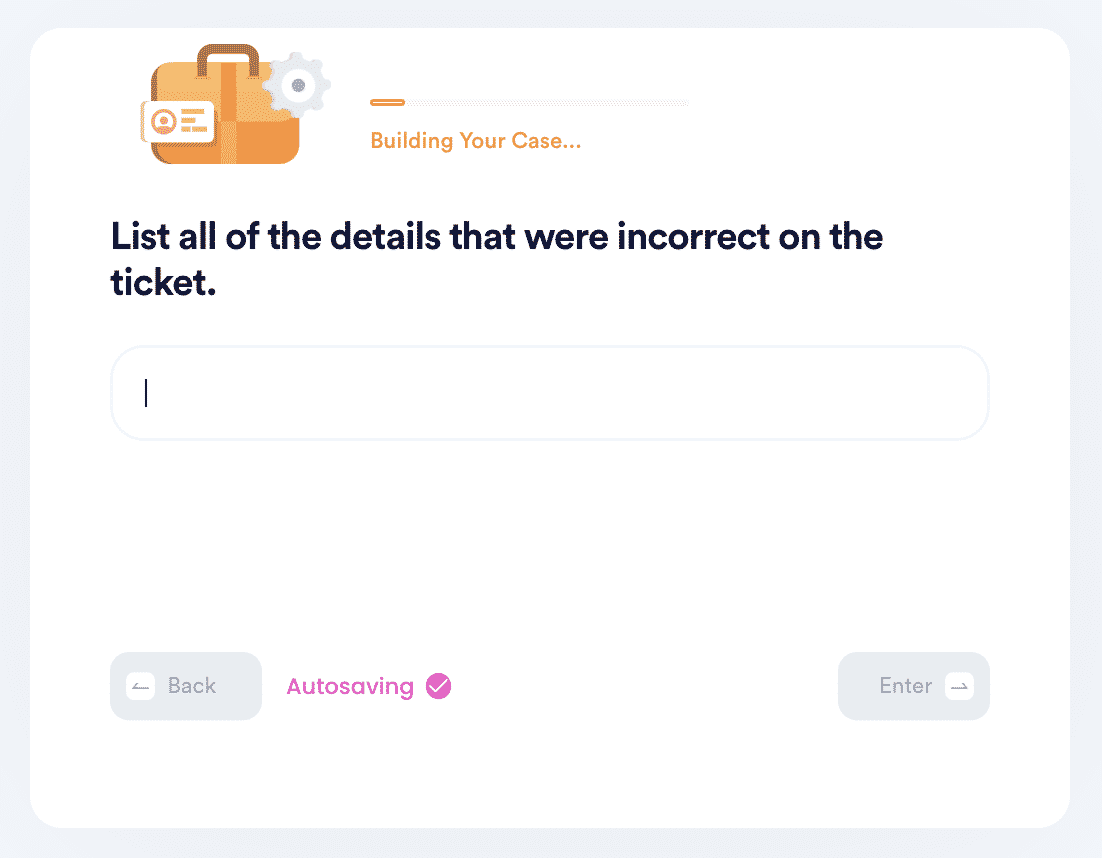
- Choose if you want us to mail the letter on your behalf, or if you would rather submit it on your own.
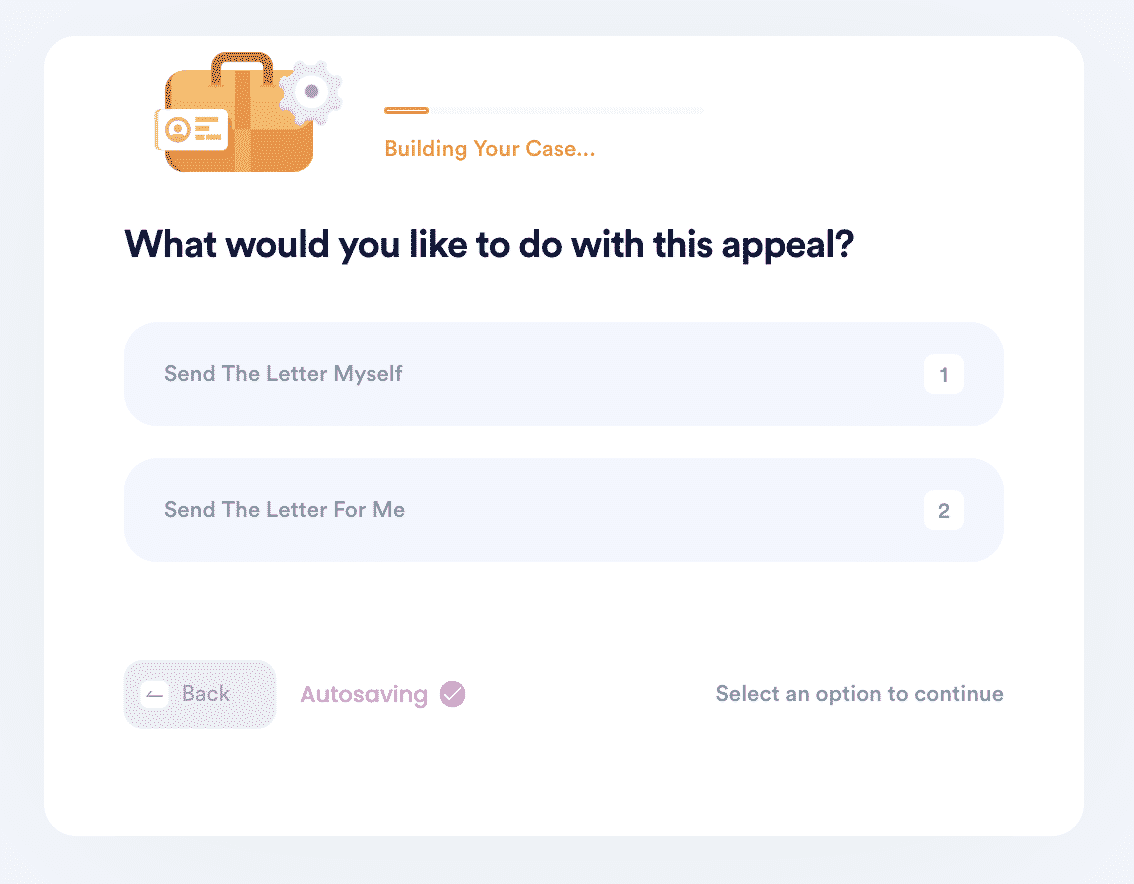
- That's all you need to do! We'll generate an appeal letter that contains state specific vehicle codes to aid your case.
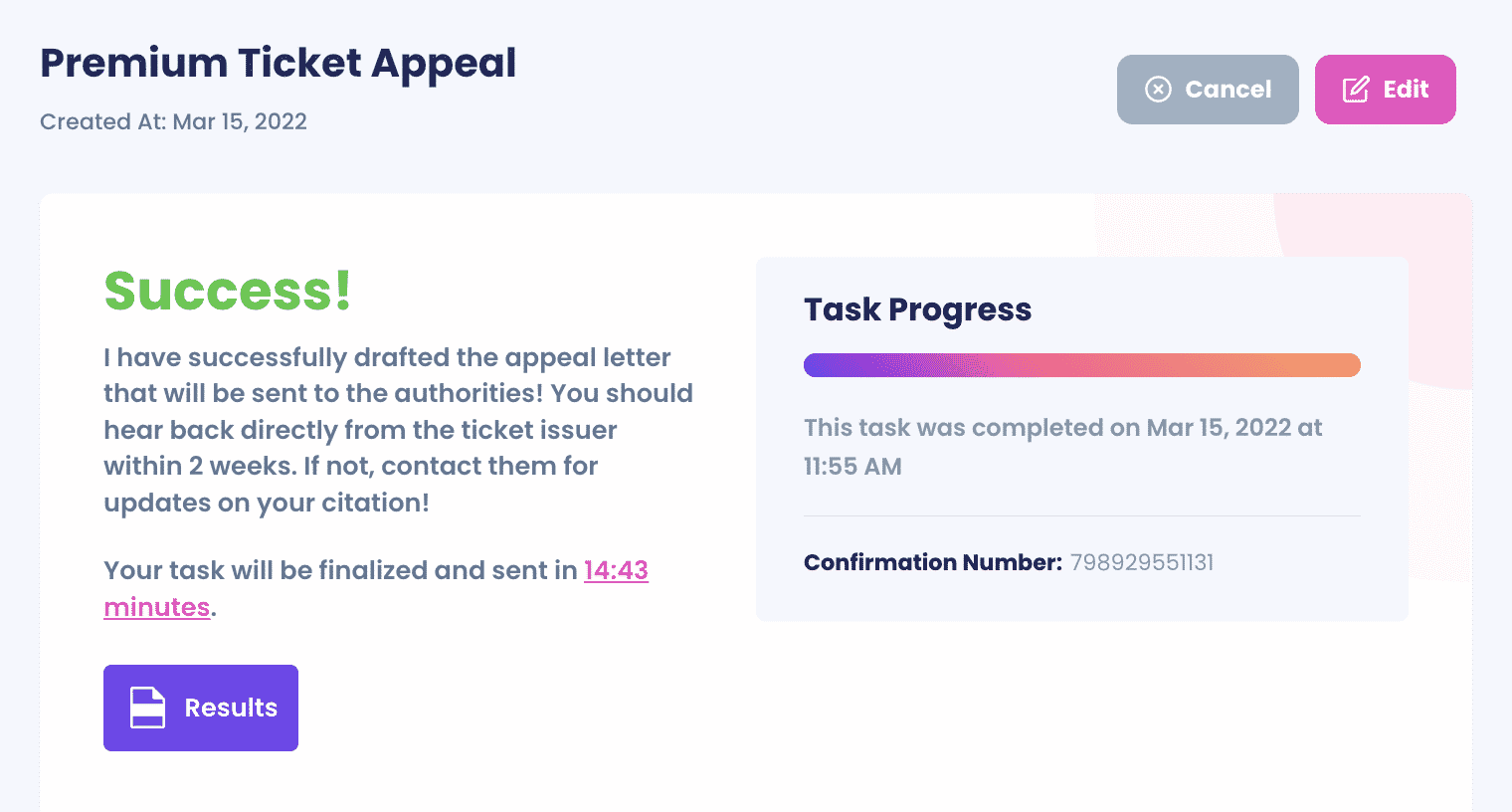
What Else Can DoNotPay Do?
More Traffic Ticket Services
- Basics of California Traffic Tickets
- Fight traffic tickets in New York City
- How to fight a traffic ticket
- Dispute Los Angeles traffic ticket
- What happens if you plead not guilty to a traffic ticket?
- Appeal Las Vegas traffic ticket
Additional Services
- Getting revenge on robocalls
- How to report a hotel for unsanitary conditions
- Suing people and companies in small claims court
- Waive College Fees
- Scheduling a DMV appointment fast and easy
- Contact government representatives
- File a complaint
- Breach of contract
- Writing letters to inmates
- Recover Passwords
- Sell Airline Mileage
- Medical records release form
- Hotel Upgrades
- Help With Bills
- File a complaint against a neighbor
 By
By